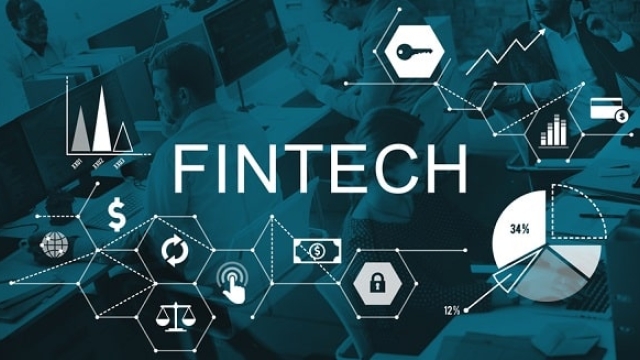Welcome to the exciting world of finance where traditional banking and centralized systems are being challenged by the wave of innovation brought by Web3 and Decentralized Finance (DeFi). In this article, we will dive into the transformative power of Web3 and explore the potential of Decentralized Finance to revolutionize the way we handle money, investments, and financial transactions.
Web3, the next phase of internet evolution, is all about creating a user-centric and decentralized online ecosystem. At its core, it aims to empower individuals by giving them back control over their data, digital identity, and financial operations. This fundamental shift is made possible by leveraging blockchain technology, the backbone of Web3, which guarantees transparency, security, and immutability of the recorded transactions.
Decentralized Finance, or DeFi for short, is a groundbreaking application of Web3 principles in the realm of finance. It encompasses a wide range of financial services and applications, all built on blockchain technology and open-source protocols. DeFi eliminates the need for intermediaries like banks and traditional financial institutions, allowing users to engage in a peer-to-peer manner and raptors with greater efficiency and cost-effectiveness.
Blockchain, the distributed ledger technology enabling Web3 and DeFi, has proven itself as a reliable and transparent system for recording and verifying financial transactions. By removing the need for centralized authorities, blockchain enables trustless interactions and creates a level playing field for everyone involved.
Cryptocurrency, the digital asset class born out of blockchain technology, plays a central role in the world of DeFi. Cryptocurrencies like Bitcoin and Ethereum, based on open-source protocols, allow for truly borderless and censorship-resistant financial transactions. With the rising popularity of cryptocurrencies, their integration into the DeFi ecosystem has unlocked a world of new possibilities, including decentralized lending, borrowing, trading, and more.
In the following sections, we will delve deeper into the components and potential of Web3 and Decentralized Finance (DeFi), exploring the novel applications and the impact they can have on the future of finance. Get ready to discover how this revolutionary combination of technology and finance is reshaping the way we think about money and financial services. Stay tuned for an insightful journey into the future of finance powered by Web3 and DeFi.
Understanding Web3 and its Impact on Finance
Web3, the next evolution of the internet, is set to transform the world of finance. With its decentralized structure and innovative technologies, Web3 is empowering individuals and revolutionizing traditional financial processes. At the heart of Web3 lies blockchain, a secure and transparent ledger that allows for peer-to-peer transactions without the need for intermediaries.
One of the key areas where Web3 is making a significant impact is in the realm of decentralized finance, commonly referred to as DeFi. DeFi leverages blockchain technology to create an open and inclusive financial ecosystem, providing individuals with access to a wide range of financial services and products. Unlike traditional finance, DeFi operates without the need for centralized institutions, making it more accessible and offering greater financial autonomy to its users.
Blockchain, a fundamental component of Web3, ensures the immutability and security of financial transactions. Through the use of smart contracts, which are self-executing agreements stored on the blockchain, DeFi applications can automate a variety of financial processes, including lending, borrowing, and trading. This automation not only increases efficiency but also reduces the need for manual intervention, thereby minimizing the potential for human error and fraud.

In addition to its inherent security and efficiency, Web3 and DeFi are enabling greater financial inclusion. By removing geographical barriers and reducing the reliance on traditional banking services, Web3 is providing individuals around the world with access to financial services previously unavailable to them. This has the potential to empower individuals in underserved communities, offering them the tools and opportunities for wealth creation and economic growth.
Overall, the emergence of Web3 and the growth of decentralized finance are reshaping the financial landscape. With its decentralized nature, blockchain technology, and innovative applications, Web3 is set to democratize finance, making it more accessible, secure, and inclusive. As we continue to witness the evolution of this transformative technology, the future holds exciting possibilities for the world of finance and beyond.
Exploring the World of Decentralized Finance (DeFi)
Decentralized Finance (DeFi) represents a revolutionary shift in the traditional financial landscape. With the advent of Web3 technologies and the power of blockchain, the way we manage, store, and exchange digital assets is being redefined. DeFi, at its core, aims to create an open and accessible financial system that operates without intermediaries, offering increased transparency and security.
Kadena Ecko
One of the key components of DeFi is the use of smart contracts. These self-executing contracts, built on blockchain platforms, enable the automation of financial processes, eliminating the need for intermediaries. By leveraging decentralized networks, DeFi applications strive to provide a wide range of financial services, such as lending, borrowing, trading, and asset management, with reduced costs and enhanced efficiency.
Another crucial aspect of DeFi is the integration of cryptocurrencies into the financial ecosystem. Cryptocurrencies, powered by blockchain technology, offer a decentralized and transparent means of conducting transactions. They provide individuals with greater control over their funds and the ability to participate in financial activities without relying on traditional banking systems.
The rise of Web3 technologies has played a pivotal role in driving the growth of DeFi. Web3 enables the development of decentralized applications (DApps) that can interact directly with smart contracts on the blockchain. This allows for the creation of innovative financial solutions that are not bound by geographical boundaries or limited by the constraints of the traditional financial sector.
As the future of finance unfolds, the potential of Web3 and DeFi to reshape the financial landscape cannot be overlooked. With the power to democratize access to financial services, eliminate intermediaries, and foster financial inclusion on a global scale, the integration of Web3 and DeFi has the potential to transform how we interact with money and transact in the digital age.
The Role of Blockchain and Cryptocurrency in the Future of Finance
Blockchain technology and cryptocurrencies have emerged as powerful tools reshaping the landscape of finance. With their decentralized and transparent nature, they hold immense potential to revolutionize traditional financial systems.
Blockchain, the underlying technology behind cryptocurrencies, offers a distributed ledger that securely records and verifies transactions. Its decentralized nature eliminates the need for intermediaries, reducing costs and increasing efficiency. This immutability and transparency of blockchain not only enhance trust but also ensure the integrity of financial transactions.
Cryptocurrencies, on the other hand, provide a way to digitally represent and transfer value without the need for traditional banks or financial institutions. Enabled by blockchain technology, cryptocurrencies operate on a peer-to-peer network, allowing for immediate and borderless transactions. They offer financial inclusivity, empowering individuals who lack access to traditional banking services.
The impact of blockchain and cryptocurrency extends beyond transactional efficiency. It opens doors to innovative financial products and services. Decentralized Finance (DeFi) is an exemplary application, where traditional financial functions such as lending, borrowing, and trading are conducted through smart contracts on the blockchain. DeFi eliminates intermediaries, reducing costs, and enabling greater accessibility to financial services for individuals around the globe.
The integration of blockchain technology and cryptocurrencies into the future of finance is an exciting prospect. Their potential to transform existing financial systems, enhance security, promote financial inclusion, and facilitate innovative solutions positions them to play a vital role in shaping the financial landscape of tomorrow.


